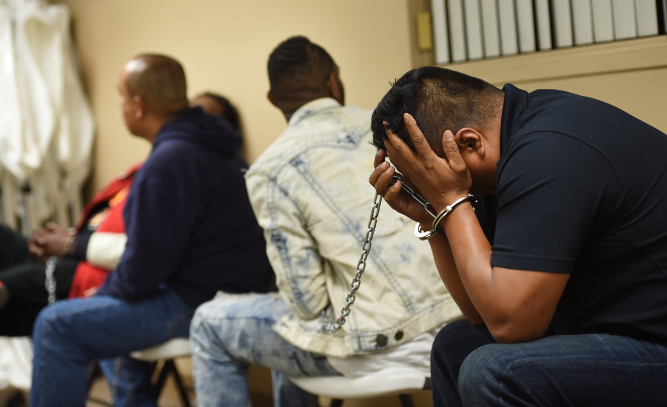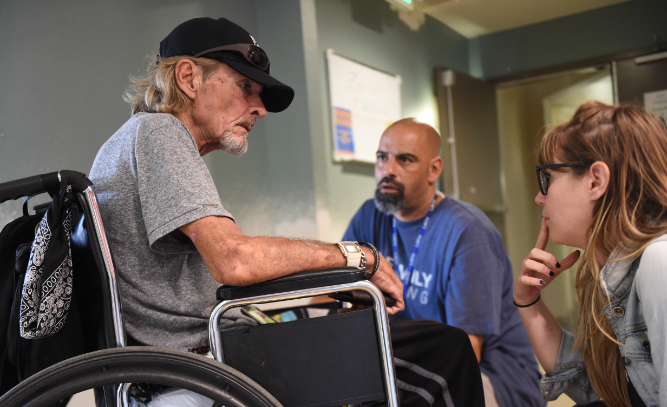KNOW YOUR RIGHTS
You have a right to a lawyer.
Your lawyer will effectively represent you throughout your case and will meet with you and help you understand what is happening. He or she will advocate for you at all court hearings and file all the important paperwork needed to make sure you have a top-notch defense.
You have a right to a speedy trial.
You have a right to demand a speedy trial. Sometimes it’s better to give up this right if more time is needed for you and your lawyer to prepare your case-- this is a decision that you and your lawyer should talk about. If you are dealing with a probation violation, then there is no right to a speedy hearing, but your hearing must be held within a “reasonable time.”
You have a right to a jury trial.
If you are charged with a misdemeanor or a felony, you have the right to demand a trial by jury. This means that 12 jury members picked from the community will carefully review the evidence and decide whether you are guilty or innocent. According to the law, you are innocent until proven guilty. This means that you cannot be found guilty of a crime unless 12 people on the jury all find you guilty by “proof beyond a reasonable doubt.”
You have the right to remain silent.
As you may have heard in the movies, “anything you say to the police can and will be used against you in court,” so you should always stay silent. You do not have to answer questions from the police at all and we recommend that you don’t. If the police try to ask you questions or if they ask to “hear your side of the story,” you should refuse to talk to them and demand to speak to your lawyer. Once you ask to speak to your lawyer, they have to stop questioning you.
Phase 1: If You Are Arrested
If you are detained or arrested by law enforcement, it’s very important to say nothing except to identify who you are. If arrested, invoking your right to remain silent can make your case easier if it ends up in trial. If the police attempt to further question you, you have the right to a lawyer:
"I would like to speak with an attorney. I wish to exercise my right to remain silent and to refuse to answer your questions. If you arrest me, I will continue to exercise my right and ask to have a lawyer present during any questioning or lineup."


Phase 2: Court & Trial
Your lawyer will help you through every step of your case.
Here’s what you can expect.
-
Step 1: Entering a Plea and Seeking Release
-
Step 2: Meeting With Your Lawyer
-
Step 3: Investigating Your Case
-
Step 4: Preliminary Hearing
-
Step 5: Settlement Conference
-
Step 6: Trial
-
Step 7: Appeal
Phase 3: Services
Our office has the tools to connect you to services
and resources that will help you get back on the right path:
-
Mental Health Support
-
Addiction Treatment
-
Pre-trial Support
-
Re-entry Support
-
Social Work & Referrals
-
Juvenile & Family Support
-
Clear Your Record for Employment & Housing


Phase 4: Fresh Start
Our Clean Slate program, Prop 47, Prop 64, and other services can help you clear or reduce your record and open doors to employment and housing.
“Know Your Rights” Content Courtesy of the San Francisco Public Defender’s Office.
Phase 1: If You Are Arrested
If you are detained or arrested by law enforcement, it’s very important to say nothing except to identify who you are. If arrested, invoking your right to remain silent can make your case easier if it ends up in trial. If the police attempt to further question you, you have the right to a lawyer:
"I would like to speak with an attorney. I wish to exercise my right to remain silent and to refuse to answer your questions. If you arrest me, I will continue to exercise my right and ask to have a lawyer present during any questioning or lineup."

Phase 2: Court & Trial
Your lawyer will help you through every step of your case.
Here’s what you can expect.
-
Step 1: Entering a Plea and Seeking Release
-
Step 2: Meeting With Your Lawyer
-
Step 3: Investigating Your Case
-
Step 4: Preliminary Hearing
-
Step 5: Settlement Conference
-
Step 6: Trial
-
Step 7: Appeal

Phase 3: Services
Our office has the tools to connect you to services
and resources that will help you get back on the right path:
-
Mental Health Support
-
Addiction Treatment
-
Pre-trial Support
-
Re-entry Support
-
Social Work & Referrals
-
Juvenile & Family Support
-
Clear Your Record for Employment & Housing

Phase 4: Fresh Start
Our Clean Slate program, Prop 47, Prop 64, and other services can help you clear or reduce your record and open doors to employment and housing.


